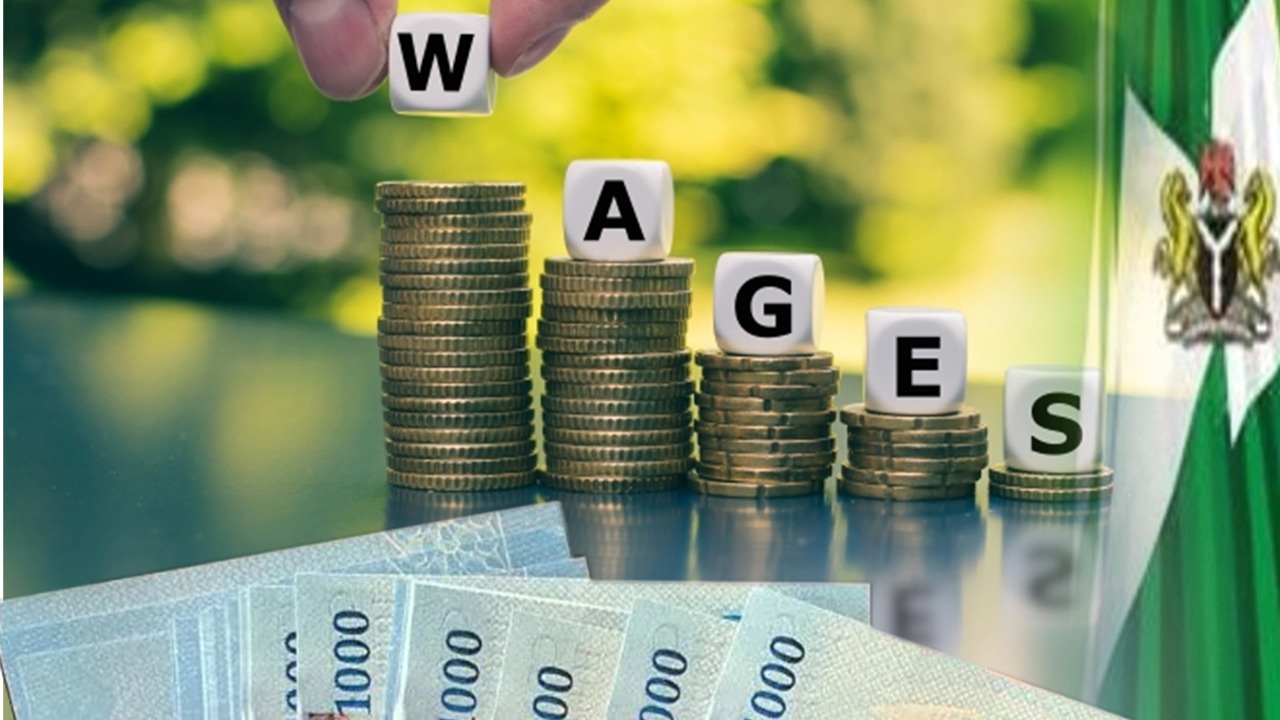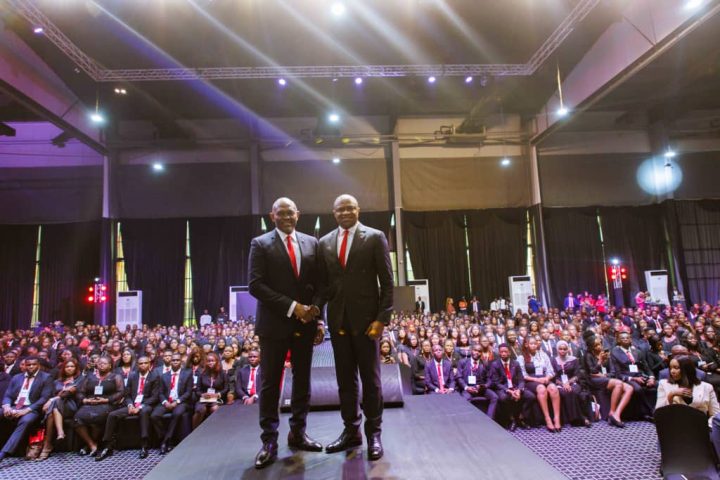Mixed reactions have trailed the proposal of ₦615,000 made by organised labour as minimum wage for Nigerian workers.
Amid the ongoing debate about increasing the minimum wage for workers to alleviate the hardship they face, the Nigerian Labour Congress (NLC) and the Trade Union Congress (TUC) came up with the recommendation describing it as a living wage that will help workers escape the scourge of poverty.
Join our WhatsApp ChannelDuring the Workers’ Day celebration in Abuja, the organised labour further gave the Federal Government a deadline of 31 May 2024 to conclude negotiations about the minimum wage or face industrial action.
The labour unions rejected the 25 to 35 per cent increase in salary for civil servants approved by the Federal Government.
READ ALSO: Why Increasing Minimum Wage To At Least N100,000 Is Important – Analysts
Prime Business Africa correspondents gathered the views of Nigerians including civil servants, private sector employees, and other experts on the new minimum wage proposal by organized labour.
Minimum wage is like a benchmark for what employers are to pay workers. This is often determined by the prevailing economic realities in the country.
While some supported the minimum wage proposal, others kicked against it. However, they all agreed that there should be an increase in the minimum wage.
Prof. Greg Ezea, a senior lecturer, Department of Mass Communication, University of Nigeria Nsukka (UNN), described the state of the Nigerian economy, as “a state of hopelessness.” According to him, the increment will not really alleviate the hardship faced by the citizens.
“I support the NLC in their line of argument,” he said. “Increasing the salary of civil servants by 25 and 35 per cent is nothing compared to the economic situation in the country.”
He added that the increase will not have any positive effect on the populace. “What of the non-civil servants—those in the private sector—that contribute to the majority of the population? We all go to the same market” he further stated.
When asked if he could trust the sustainability of this increase, he gave a negative reply. “They promise one thing, and tomorrow they do another thing. Look at our refineries that they promised they would fix; have they fixed them? People cannot buy fuel, and they are even talking about removing the subsidy for electricity, and that would bring more hardship.”
“It is a hopeless situation,” he lamented.
NEW Minimum Wage will Only Favour civil servants
On the contrary, Mr. Donatus Ibeh, a private sector employee, expressed disapproval of the NLC recommendation. For him, both private sector employees and those who are self-employed will be totally left out.
“This increment will only affect those in the government sector, as those in the private sector would have to increase the prices of their goods and services in order to meet the living wage increment. The landlords will have to increase the prices of their rents, the mechanics will have to increase the prices of their services, and these workers will still have to pay high amounts for goods and services.”
Mr. Ibeh, who holds a HND in accounting, further stated that he is not against the living wage increment, but it should be between ₦70,000 and ₦100,000, and the rest should be invested in productive sectors of the economy to create employment and reduce the cost of goods and services. “If they increase it to that amount, those that have it would still spend it, and for those that do not, it would only increase the rate of corruption, kidnapping, and armed robbery and the rest,” he claimed.
He advised that instead of increasing the living wage to such an amount, the money should be channelled to other sectors of the economy to reduce the cost of living.
Mr Ireoluwa Oguntowase, a labour law expert, in an interview with the News Central TV said organised labour only made a recommendation which is their right in line with provisions of the Minimum Wage Act.
He said: “We need to understand that by provision of the Minimum Wage Act, what they have done is to make recommendations, and the recommendation was actually made pursuant to Section 6 of the Minimum Wage Act, which empowers the tripartite committee to make such a recommendation. So it is the right step in the right direction. But we should also consider that it is not the final lap. The federal government, headed by the president of the Federal Republic of Nigeria, also has the power under the Minimum Wage Act to sit down with them and make a resolution.”
Oguntowase, who noted that not all employees might be able to benefit from the living wage increment, especially those in the private sector, however, did not see the ₦615,000 as being too much.
In contrast, Mrs Titilope Akosa, an environmentalist, in an interview with TVC said that aside from showing the public the metrics by which they were able to arrive at ₦615,000, the NLC should also provide some sort of simulation, which should include electricity bills, inflation, and the like.
“How do you figure all these into a living wage in such a way that those in the lowest cadre would be able to take care of all these things, at least at a minimal level?” She asked.
Mrs Akosa said the proposal is arbitrary in nature, as according to her, there should be enough evidence on the ground to back up why the living wage should be increased to such an amount.
Mr. James Ndukwe, who is a final-year student of economics and political science, lends his voice on the matter. “I saw the proposed amount; it’s way too high. From my viewpoint, the reason the NLC proposed that amount is because of the removal of the fuel subsidy, which made them believe that the funds from the fuel subsidy would be channeled into the minimum wage.
“Looking at whether it will cripple the economy, it won’t. Economic growth is generated by the performance of the economic sectors in Nigeria. However, we have to look at whether the money will be used by the workers for investment purposes.”
Some other analysts observed that an increase in the minimum wage would give people the opportunity to increase their consumption, leading to an increase in demand for goods and services which has implications on inflation and possibly the loss of jobs.


















Follow Us